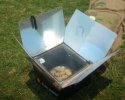Tui
Jedi
Laura quote, Session 14 March 2014:
Yes, I agree that these experiments are important. Twice I have done experiments of 3 weeks each.
1. A few years ago I stopped eating all food and only drank water for three weeks, to test if I can do this in an emergency situation if I ran out of food and the shops are empty. I survived easily in body and mind only drinking water - after about the third day I did not experience hunger until I started breaking my fast. One must be careful breaking a fast like this, however - ease back into solid foods over a couple of days, starting with other, thicker liquids and slowly building up to eating solids again. I broke my fast according to accepted rules, having diluted orange juice on the first day, for instance, then adding other soft food the next day and so on.
2. Then late last year, I switched off the mains and lived without electricity for three weeks. I never cheated as I really wanted to know what it would be like living without electricity - absolutely no electricity for the lights, refrigeration, cooking or hot water, and the electric gate's battery went dead. But I had prepared beforehand, so I got through it easily. Apart from the gate. It blocked me in for a while, while I had to figure out how to manually dislodge the gears of its motor to be able to push the gate open. Now I know.
But I realise some people will have more difficulties with experiments like these, for instance if they are in bad health and if they have children who have not been prepared in a practical way for emergency situations by, for instance, having camped out in the wilds before. All the more reason, then, why you should start experimenting. I would advise to practise living without electricity at home for at least one weekend. Switch it off before dark on a Friday and only have it on again on Sunday evening, just to get a taste of what city life without electricity entails. It will also be a good idea to learn to eat only smaller portions from now on.
Some of the best investments I made during experiment number 2, living without electricity, were:
- A black plastic solar camping shower bag (40 litres) - enough to have a daily warm shower, and to wash the dishes and clothes. (I know we are trying to have only cold showers, but warm water really cleans the hair better.) The water in the black plastic bag placed in the sun for a few hours gets extremely hot, and you will have to cool it by adding cold water before showering or washing your hair or you will burn.
- A gas cooker.
- A few solar garden lights and extra batteries, which made the candles and matches last longer (candles give a much brighter light and I saved them for when I needed brighter light). The solar lights charged in the sun during the day. At night I placed the solar lights at a few strategic places, for instance where there are stairs, and close to windows so that the house would not seem unlived in and invite intruders. I could even read by these very dim lights. I found that when shining one upwards toward the shades of ceiling lamps, it gave the illusion that the ceiling light is switched on. I can imagine in a room where children sleep, this could be of comfort to them.
- Investing in time to experiment with keeping food cool making a little "fridge", and how to make a simple but effective solar oven.
Here is the website where I found the cardboard box solar oven (I did not personally experiment with this stove, as I had the gas cooker, but I keep the method and what is needed to make it handy in case I need to build it, should I run out of gas in an emergency and the shops are out of stock): http://homegrown.org/blog/2008/06/diy-solar-cookers-a-few-projects/
Here is the website for making a clay pot fridge. I was not eating meat at the time, so I cannot vouch for how long fresh meat will keep fresh, but I think meat like bacon should last for quite a few days. I stored fruit, vegetables, milk (in a glass container with lid) and cheese in two of these little fridges. I experimented with moving the pot fridges around, into the sun, out of the sun, where there is a breeze, etc, until I found the best spots: http://www.wikihow.com/Make-a-Pot-in-a-Pot-Refrigerator
I also found that wrapping butter, milk (the milk in a glass jar with lid) and cheese in a wet cloth and placing it on a breezy windowsill, kept these foodstuffs fresh for a few days. You have to keep the cloth wet, though, and keep this "fridge packet" in a breezy place, out of the sun, and out of reach of insects.
Ya'll ought not to forget one of the top five threats: epidemic/pandemic. Sometimes when we have FOTCM members here, we play "let's pretend thus and so has happened/is happening, what do we do?" It's an interesting exercise and I think some of the other FOTCM groups do it too.
Yes, I agree that these experiments are important. Twice I have done experiments of 3 weeks each.
1. A few years ago I stopped eating all food and only drank water for three weeks, to test if I can do this in an emergency situation if I ran out of food and the shops are empty. I survived easily in body and mind only drinking water - after about the third day I did not experience hunger until I started breaking my fast. One must be careful breaking a fast like this, however - ease back into solid foods over a couple of days, starting with other, thicker liquids and slowly building up to eating solids again. I broke my fast according to accepted rules, having diluted orange juice on the first day, for instance, then adding other soft food the next day and so on.
2. Then late last year, I switched off the mains and lived without electricity for three weeks. I never cheated as I really wanted to know what it would be like living without electricity - absolutely no electricity for the lights, refrigeration, cooking or hot water, and the electric gate's battery went dead. But I had prepared beforehand, so I got through it easily. Apart from the gate. It blocked me in for a while, while I had to figure out how to manually dislodge the gears of its motor to be able to push the gate open. Now I know.
But I realise some people will have more difficulties with experiments like these, for instance if they are in bad health and if they have children who have not been prepared in a practical way for emergency situations by, for instance, having camped out in the wilds before. All the more reason, then, why you should start experimenting. I would advise to practise living without electricity at home for at least one weekend. Switch it off before dark on a Friday and only have it on again on Sunday evening, just to get a taste of what city life without electricity entails. It will also be a good idea to learn to eat only smaller portions from now on.
Some of the best investments I made during experiment number 2, living without electricity, were:
- A black plastic solar camping shower bag (40 litres) - enough to have a daily warm shower, and to wash the dishes and clothes. (I know we are trying to have only cold showers, but warm water really cleans the hair better.) The water in the black plastic bag placed in the sun for a few hours gets extremely hot, and you will have to cool it by adding cold water before showering or washing your hair or you will burn.
- A gas cooker.
- A few solar garden lights and extra batteries, which made the candles and matches last longer (candles give a much brighter light and I saved them for when I needed brighter light). The solar lights charged in the sun during the day. At night I placed the solar lights at a few strategic places, for instance where there are stairs, and close to windows so that the house would not seem unlived in and invite intruders. I could even read by these very dim lights. I found that when shining one upwards toward the shades of ceiling lamps, it gave the illusion that the ceiling light is switched on. I can imagine in a room where children sleep, this could be of comfort to them.
- Investing in time to experiment with keeping food cool making a little "fridge", and how to make a simple but effective solar oven.
Here is the website where I found the cardboard box solar oven (I did not personally experiment with this stove, as I had the gas cooker, but I keep the method and what is needed to make it handy in case I need to build it, should I run out of gas in an emergency and the shops are out of stock): http://homegrown.org/blog/2008/06/diy-solar-cookers-a-few-projects/
Here is the website for making a clay pot fridge. I was not eating meat at the time, so I cannot vouch for how long fresh meat will keep fresh, but I think meat like bacon should last for quite a few days. I stored fruit, vegetables, milk (in a glass container with lid) and cheese in two of these little fridges. I experimented with moving the pot fridges around, into the sun, out of the sun, where there is a breeze, etc, until I found the best spots: http://www.wikihow.com/Make-a-Pot-in-a-Pot-Refrigerator
I also found that wrapping butter, milk (the milk in a glass jar with lid) and cheese in a wet cloth and placing it on a breezy windowsill, kept these foodstuffs fresh for a few days. You have to keep the cloth wet, though, and keep this "fridge packet" in a breezy place, out of the sun, and out of reach of insects.



 , I for example I have my camping gear, tent,sleeping bag, gas stove, batteries, etc
, I for example I have my camping gear, tent,sleeping bag, gas stove, batteries, etc  , also I am fully Keto-adapted, so hopefully we can get out alive of any event....
, also I am fully Keto-adapted, so hopefully we can get out alive of any event....